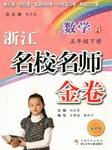题目内容
Joe is proud and ______, never admitting he is wrong and always looking for someone else to blame.
A. strict B. sympathetic C. stubborn D. sensitive
C
【解析】
试题分析:A.strict严格的;B.sympathetic同情的;C。stubborn顽固的;D.sensitive敏感的。句意:Joe是一个又自豪的又固执的人,他从不承认自己错了,总是找另一个人受责备。根据后面的叙述从不承认错误,看来他是顽固的。故选C。
考点:考查形容词辨析及语境的理解。

练习册系列答案
 浙江名校名师金卷系列答案
浙江名校名师金卷系列答案 全优冲刺100分系列答案
全优冲刺100分系列答案
相关题目